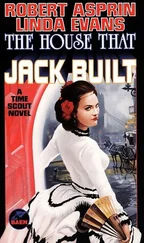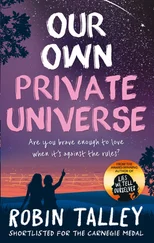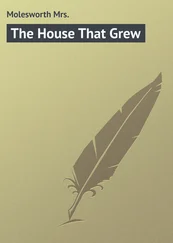O. Douglas - The House That is Our Own
Здесь есть возможность читать онлайн «O. Douglas - The House That is Our Own» — ознакомительный отрывок электронной книги совершенно бесплатно, а после прочтения отрывка купить полную версию. В некоторых случаях можно слушать аудио, скачать через торрент в формате fb2 и присутствует краткое содержание. Жанр: unrecognised, на английском языке. Описание произведения, (предисловие) а так же отзывы посетителей доступны на портале библиотеки ЛибКат.
- Название:The House That is Our Own
- Автор:
- Жанр:
- Год:неизвестен
- ISBN:нет данных
- Рейтинг книги:3 / 5. Голосов: 1
-
Избранное:Добавить в избранное
- Отзывы:
-
Ваша оценка:
- 60
- 1
- 2
- 3
- 4
- 5
The House That is Our Own: краткое содержание, описание и аннотация
Предлагаем к чтению аннотацию, описание, краткое содержание или предисловие (зависит от того, что написал сам автор книги «The House That is Our Own»). Если вы не нашли необходимую информацию о книге — напишите в комментариях, мы постараемся отыскать её.
The House That is Our Own — читать онлайн ознакомительный отрывок
Ниже представлен текст книги, разбитый по страницам. Система сохранения места последней прочитанной страницы, позволяет с удобством читать онлайн бесплатно книгу «The House That is Our Own», без необходимости каждый раз заново искать на чём Вы остановились. Поставьте закладку, и сможете в любой момент перейти на страницу, на которой закончили чтение.
Интервал:
Закладка:
“Kitty dear”—Isobel went over and stood beside her friend—“it’s too painful for you to remember.”
“I’m remembering all the time, and it’s a relief to tell it to someone, and you’ve been so good, never asking any questions. But there’s not much to tell. I had dreaded a struggle at the end, a dreadful insufficiency of breath, but there was none: he just stopped breathing. It was a lovely night, full of stars, and the windows were wide open. I knelt beside him, and looked at the lake and the mountains and felt almost happy. It lasted, that exultant feeling, through the painful, crowded days that followed, and through the journey to England—as if I were rejoicing in his escape—and it wasn’t till I reached London and drove through the streets to this hotel that I realised my loneliness. Rob and I had had such happy years in our little house in Hampstead, and the memory of them rushed over me like a flood. We always took our holiday late, in September or even October, for Rob liked the autumn in Scotland, and I had recollections of driving out from Euston on just such a frosty evening, eager, now that our holiday was over, for our own home. And when the taxi-man rang the bell in the wall, and the green door was opened by our Skye housemaid, Katie, so douce in her long skirt and white cap and apron, she’d say—‘Och, Mem, ye’re back then, and it’s glad we are to see you. It’s time you were home, for the leaves are all down.’ And through the open door we could see Maggie, the cook, hovering. The curtains would be drawn in our living-room, and we’d take just a glance round at our books and pictures, and our chairs drawn up to the fire, before we rushed up to change into something very cosy and shabby, and come down to our little Georgian dining-room and Maggie’s dinner, which tasted so good after the more aspiring cooking we had been having.”
She stopped speaking, and Isobel said, “If you’ve sad things to remember, you’ve very nice things too. Thank you for telling me.”
The van had finished unloading, and was departing, pursued by the excited barking of the small dog. The street-singer, discouraged, had left, and his place had been taken by another, a musician of sorts.
As Isobel stood watching her friend, a rollicking tune came up from the court.
Kitty looked up. “Someone’s playing a penny whistle—let me see—I knew it. Listen! D’you know what he’s playing?” And she repeated some lines of the song.
An ye had been where I hae been,
Ye wadna be sae canty-o,
An ye had seen what I hae seen
On the banks o’ Killiecrankie-o.
“Rob used sometimes to shout that—he couldn’t sing —when he was shaving in the morning. That man must be a Scot. Where’s my purse?” And, throwing up the window, she dropped a shilling on the player, who promptly stopped playing to grovel for the coin.
Then Kitty said rather apologetically, “To me there is something about a penny whistle. . . . Was it R. L. S. who described himself as a mighty performer before the Lord on a penny whistle? And that tune. Do you know, all this time I’ve practically forgotten, or, at least, completely lost touch with, what really means so much to me—my native land. I don’t know how I could, except that my one effort has been not to think of anything that recalled the past. Living in an hotel helped me. I could watch the people come and go, and talk to one and another—or rather listen. It does astonish me how people can pour out all their private affairs to strangers, but in a way it eased one to hear of others’ troubles.”
“What helped you most,” said Isobel, “was your love of reading. I never saw anyone devour books as you do.”
“Reading,” said Kitty, “has been a sort of dope to me. I’ve simply read and read through these months. My particular girl in The Times gives a resigned sigh at the sight of me. As you know, I visit her almost daily, and demand every new book as it comes out. Novels, biography, travel, history, exploration, all are grist to my mill. She must wonder what sort of life I lead, always with my nose in a book. And indeed I am a selfish wretch, doing nothing for any human creature.”
“No more selfish than the most of us,” Isobel protested, but Kitty shook her head, saying:
“Why, you, my dear, give hours every day to other people—doing Braille books, helping overworked secretaries in charitable work. You write such a beautiful clear hand. I wish I did.”
“I’m thirty, all but,” said Isobel, “a great, big, hulking, healthy person, and I’ve done nothing so far to justify my existence.”
“Why? D’you want a career?”
“Not particularly, and, anyway, it’s too late now to think of it. I forget if I ever told you that when I left school I went to live with my only relation, a great-aunt, who didn’t think a career a nice thing for a girl. I daresay I could easily have overborne the poor old dear’s scruples and gone my own way, but I didn’t care enough. I’ve never had much initiative, and there was no-one to give me a lead. Besides, I knew I wasn’t in the least clever. The only prize I ever got at school was for needlework. Another thing, I had enough to live on, and it hardly seemed fair to take a job perhaps from a girl who had to earn her own living—so there it was. I did nothing. My time was spent in the most approved Victorian way, doing the flowers, reading to my aunt, driving with her, playing tennis with some of the young people about, now and again going to a dance or a play. I was twenty-four when Aunt Constance died. After travelling about Europe for a bit with a friend, I came here to Queen’s Court, dug myself in, and that’s all. Nothing much to show for thirty years!”
Kitty sat up briskly and demanded, “But surely you don’t mean to stay indefinitely in this hotel, or any hotel? I certainly do not. I’m tired of living among other people’s things, eating with strangers, talking to them. I’ve suddenly realised that I want my own things about me. D’you know that it’s two years and a half since I saw my belongings? We gave up the Hampstead house when the specialists said that Rob must go abroad for a long time. Everything was stored, and I’ve hardly ever given the poor things a thought. I don’t know what Rob would think of me, losing grip of myself as I’ve done. His precious books and prints, the furniture we picked up, a piece at a time, with such pleasure, the family silver and portraits. I must get them all out at once.”
“There’s not much use getting them out if you’ve no place to put them,” Isobel pointed out.
“That’s true. I must start looking for a house at once. But where?”
“I don’t suppose you’d want to go back to Hampstead?”
“No,” said Kitty.
“A flat would be best, don’t you think?”
“If I could run to one,” said Kitty; “but aren’t they hideously expensive, except the very new ones, which are suffocatingly small? But we might look at them.”
“Yes, do let’s,” said Isobel. “I adore looking at houses.”
Isobel was delighted to see a spark of interest in her friend’s eyes, a slight colour in her cheeks. She had been such a pathetic figure all winter, so small and black, never caring to go out, except to The Times Book Club, shivering over a fire, speaking when spoken to, but making no advances, receiving confidences, but giving none. Isobel herself had been the one person she had been at all intimate with. They were in the same corridor, and Isobel’s room was a fairly large one with a pleasant outlook, and she had taken some trouble to make it home-like. Her bed in the day became a divan, a large cupboard did away with the necessity of a wardrobe, and she had supplied herself with two comfortable arm-chairs and a screen, as well as pretty rugs and hangings and shades. The two friends sat there when the lounge was crowded.
Читать дальшеИнтервал:
Закладка:
Похожие книги на «The House That is Our Own»
Представляем Вашему вниманию похожие книги на «The House That is Our Own» списком для выбора. Мы отобрали схожую по названию и смыслу литературу в надежде предоставить читателям больше вариантов отыскать новые, интересные, ещё непрочитанные произведения.
Обсуждение, отзывы о книге «The House That is Our Own» и просто собственные мнения читателей. Оставьте ваши комментарии, напишите, что Вы думаете о произведении, его смысле или главных героях. Укажите что конкретно понравилось, а что нет, и почему Вы так считаете.
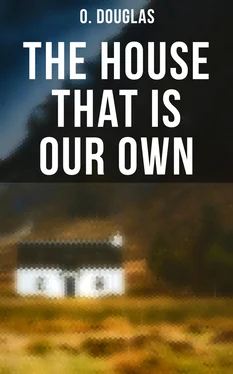

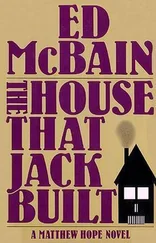

![Альфред Ван Вогт - Вечный дом / The House that Stood Still [= А дом стоит себе спокойно…; Обитель вечности]](/books/276568/alfred-van-vogt-vechnyj-dom-the-house-that-stood-thumb.webp)
